- Home
- Aimée Thurlo
A Time of Change
A Time of Change Read online
The authors and publisher have provided this e-book to you without Digital Rights Management software (DRM) applied so that you can enjoy reading it on your personal devices. This e-book is for your personal use only. You may not print or post this e-book, or make this e-book publicly available in any way. You may not copy, reproduce, or upload this e-book, other than to read it on one of your personal devices.
Copyright infringement is against the law. If you believe the copy of this e-book you are reading infringes on the authors’ copyright, please notify the publisher at: us.macmillanusa.com/piracy.
To Jennifer Purdy—may you always walk with blessings before you.
ACKNOWLEDGMENTS
With special thanks to Michele Kiser for her help with the Navajo language.
To Sergeant Ryan Tafoya, who has amazing patience answering all our questions.
And to Steve Henry, attorney-at-law, for sharing his legal expertise once again.
CONTENTS
Title Page
Copyright Notice
Dedication
Acknowledgments
Chapter 1
Chapter 2
Chapter 3
Chapter 4
Chapter 5
Chapter 6
Chapter 7
Chapter 8
Chapter 9
Chapter 10
Chapter 11
Chapter 12
Chapter 13
Chapter 14
Chapter 15
Chapter 16
Chapter 17
Chapter 18
Chapter 19
Chapter 20
Chapter 21
Chapter 22
Chapter 23
Preview: Looking Through Darkness
Also by Aimée & David Thurlo
About the Authors
Copyright
ONE
Josephine Buck walked in beauty. She attended school two nights a week at San Juan College in Farmington, New Mexico, and held a part-time job at The Outpost, a trading post adjacent to the Navajo Nation. At age twenty-six, she was also the youngest apprentice to one of the tribe’s most revered hataaliis, medicine men. Though it would take years, someday she hoped to become a Navajo medicine woman—a rare profession for women of her tribe.
Her schedule was impossibly demanding, but through the traditions of the Diné, the Navajo People, she’d found the strength to honor all her commitments. She started each morning by offering her Prayers to Dawn, a ritual as old as the sacred mountains.
Standing on the sage-covered hillside behind her home on the Navajo Reservation, she waited for the first rays of light to peer over the horizon. The moment Sun greeted her, Jo began to chant. “Dawn, beautiful dawn.” Her voice rose, each line reverberating with the power of conviction. The prayer was as much a part of her as the beating of her heart.
At long last, she finished. “Hozhone nas clee, now all is well,” she said, then took a pinch of pollen from her deerskin medicine bag and threw it into the air. The tiny particles danced like yellow glitter in the early morning light, catching in a gentle breeze and dispersing before drifting down to Mother Earth.
Filled with energy, Jo hurried back downhill. She was going to work early to meet with Tom Stuart, the trading post’s Anglo owner. For the past two months, something had been bothering him, but the store was a busy place—she worked thirty-five hours a week there now—and they hadn’t had time to talk about anything except business. Then he’d asked her to stop by his house before work this morning to discuss an important matter. His tone was so grim, he’d scared her a bit. She’d spent a long sleepless night speculating on the reason, each new scenario worse than the last.
Tom was more than her boss; he was the father she wished she’d had, and her friend. When her own father became sick, the former marine turned storekeeper had been there for her. He’d allowed her to keep flexible hours and done everything in his power to help her through that difficult time.
As a good Navajo, Jo believed that balance was the way to harmony. Tom had helped her, and now she’d do the same for him. Jo hurried to her truck and set out, wondering what lay ahead for them today. As she steered into the long curve around the south end of the Hogback formation, the ridge that ran north and south along the Navajo Nation’s eastern boundary, she could see the trading post off in the distance, just off the Rez.
A white van, probably a delivery vehicle, pulled out onto the highway from the turnoff and headed east toward Farmington. The van reminded her of the vehicles used by bank and business couriers, or those extra rental vans used by FedEx around the holidays, except this one had no markings. The odd thing, though, was that it was awfully early for a shipment or food delivery to come in.
Tom’s trading post was a private operation, not affiliated with the tribe. It was modeled after early nineteenth-century businesses, the kind most Navajos had often used to trade or purchase supplies. Painted in a light turquoise blue color, the building contrasted with the surrounding coal-rich countryside that supplied fuel to two major power plants.
Jo drove straight to the big metal gate that led to Tom’s home behind the trading post. His white Chevy pickup stood just inside, parked in its usual spot. Jo pulled up next to the enclosure and walked to the gate. Tom had given her a key to the padlock months ago, but she didn’t have to use it this morning. The chain and lock were nowhere to be seen.
Tom was a man of settled habits, and this change in routine surprised her. Jo strode quickly up the flagstone walk and knocked hard on his front door. Tom was an early riser. A widower, he’d turned what was once his wife’s sewing room into a gym, and worked out every morning. She figured that he’d probably be there now.
Her knock went unanswered. Maybe he’d finished and stepped into the shower. She went to the front window, open about eight inches, and listened for the sound of running water.
“Morning, Tom. It’s me, Jo,” she called out. She expected to catch a whiff of the eye-opening pitch black brew Tom called coffee, but an entirely different scent came wafting out to meet her.
It wasn’t strong, but it was distinctive. For a moment, she struggled to identify it. Then memories of family gatherings and freshly butchered sheep came rushing back. Blood—that was the scent. Maybe he’d been butchering a side of beef someone gave him last night, or possibly a freezer had broken down. If meat had spoiled, he would have arranged to get an early delivery from a butcher shop.
She shivered, not from the cold, but from the thought that niggled at the back of her mind. Something felt … off.
Jo brushed away the big blowflies that had gathered on the window screen, but they came right back. Uneasy, she circled around to the front door. As she reached into her shoulder bag for the emergency key he’d given her, she noticed that the door wasn’t completely shut. She pushed it with the tip of her boot and it swung open without a sound.
“It’s me. I’m coming in,” Jo called, her skin prickling.
There had been a time people around here didn’t bother to lock their doors, but modern life had ushered in many changes. With thieves and drug crimes more prevalent now, caution had become a fact of life. Yet she’d seen no signs of a break-in, just a door that shouldn’t be open and a missing lock and chain. And there was that white delivery van.…
Though she hated the thought of intruding on anyone’s privacy, Jo forced herself to go inside. As she stepped into the living room, the scent of blood grew stronger.
Her entire body began to tremble as she took the room in at a glance. The shelf on the wall that had held antique salt and pepper shakers had been rearranged. The pair of brightly colored parrots she’d often admired were no longer there. Everything else appeared to be in order. But that scent �
�� Maybe he’d fallen and bumped his head, or cut himself while slicing meat or chicken.
Jo poked her head around the corner into the kitchen. Nobody was there, and the place was immaculate, as usual. No coffee was brewing either. Strange.
“Where are you?” Her mouth was dry and her heart pounded in her ears as she crossed the living room and went down the hall.
A sudden heart attack wouldn’t explain the heavy scent of blood. She took another whiff, trying to pinpoint its location. Maybe he’d slipped in the shower, or cut himself shaving … badly.
Seeing the light was on in Tom’s study, Jo hurried toward it and looked inside. Her body turned to ice and for a moment horror kept her frozen to the spot. Tom was slumped across his desk, his forehead resting in a pool of dark blood. All that was left of his temple was a mass of red, gray, and black tissue. His face was turned toward the door, toward her, and his open eyes, opaque and totally lifeless, stared into eternity. With a strangled cry, she looked away. On the floor on Tom’s right side was a revolver. His lifeless hand dangled a foot above the weapon.
Grief and shock raged a battle inside her. This wasn’t happening—it couldn’t be. She opened her mouth to scream, but no sound came out.
Finally something inside her snapped. Panic surged through her and she ran outside as fast as she could. By now her entire body was shaking so hard, she could barely function, but she managed to fumble through her purse and find her cell phone. It took her three tries, but at last she was able to call 911.
As she tried to describe the scene to the emergency operator, she kept having to stop in midsentence and suck in air. Tears were streaming down her face. Finally, inevitably, she tasted the bile rising in her throat. Mumbling she was going to be sick, Jo dropped her purse and phone on the floor of the porch and ran out onto the gravel just in time. Her stomach turned inside out, emptying its meager contents, followed by the dry heaves.
After several moments, Jo stumbled back to where she’d dropped the phone. Wiping her mouth with a tissue, she managed a weak “I’m back.”
Remembering something her hataalii teacher had taught her, Jo forced herself to slow her breathing. Little by little she regained a measure of control and was able to finish speaking to the emergency operator.
Jo was just putting the phone away when she felt a hand on her shoulder. Startled, she spun around.
“What’s wrong, Jo? You sick?”
Jo stared at Regina Yazzie. Like her, the young Navajo woman worked nearly full-time at the trading post. Mother to a two-year-old, Regina was about her age, but they were nearly opposites in every conceivable way.
Regina’s close-cropped black hair was highlighted in shades of brown and gold. Jo’s hair was long, thick, and ebony, and at work she usually wore it in a single braid that fell almost to her waist. Regina was also tall for a Navajo woman, standing around five foot seven. Jo was five foot two—if she stood up really straight.
Yet the biggest difference between them went beyond looks and family. Regina was a Modernist Christian, and Jo, an apprentice medicine woman, treasured the traditional beliefs of the Diné.
“What’s going on? Is it Tom?” Regina pressed, turning her head toward the front door of the house. “Did he have a heart attack or something?”
“Don’t use his name,” Jo said, her hand on the medicine bag tied to her belt. Navajos believed that the good in a man merged with universal harmony, but the evil found in every person remained earthbound. That force was an ever-present danger to the living unless the proper cautionary steps were taken. The small drawstring bag contained flint, said to be powerful medicine against the chindi because of the way light reflected off its surface.
“Oh, my God … he’s dead?” Regina whispered, crossing herself.
Jo nodded and tried to swallow, but her mouth was too dry and her throat tasted foul.
“What—?”
“I don’t know,” Jo said, her voice trembling. “He was shot—in the head.”
Regina stared at her. “Shot … an accident? How? That shotgun he keeps behind the counter?”
Jo shook her head, not wanting to answer any more questions. “Here comes the county deputy,” she said, taking another unsteady breath.
The sheriff’s car that pulled up was unmarked, but the flashing light on the center dashboard told them what they needed to know. A tall, middle-aged Anglo woman in civilian clothes wearing a dark blue SJSD jacket approached. “I’m Detective Wells,” she said, motioning toward her belt, where a gold badge and handgun were attached. “I’m responding to a call. Which one of you is Josephine Buck?” she said, looking from face to face.
Regina crossed herself again, took a step back, and pointed to Jo. “I just got here.”
Were Navajo Christians afraid of the chindi, too, Jo wondered, watching Regina’s reaction. Or maybe some Navajo traditions were too deeply ingrained for any Diné to ignore.
“I’m the one who called the sheriff’s department,” Jo said, still gripping the medicine pouch tightly.
As she told the detective what she’d seen inside the house, Jo saw Regina’s face turn pale and her eyes grow large.
“Did you see any sign of an intruder—maybe a door kicked in or an open window?” Detective Katie Wells asked.
Jo told her about the open front door and the missing chain and padlock on the gate. Then she remembered the delivery van. “I saw a white van coming out of the drive and onto the highway as I slowed for the turn, but I think it was probably an early delivery. The van drove off toward Farmington—east.”
Katie’s eyes narrowed. “Did you see a company name or get a look at the tags?”
“It was a plain white van. I didn’t see any name or logo on it. It had yellow New Mexico plates, I remember that. I can check the delivery schedule, or call our vendors, if you’d like.”
“Later. Right now I’m going inside to take a look. You two stay put,” Detective Wells said.
As Jo watched, the detective stepped up on the porch, placed her hand on the butt of her handgun, and opened the screen door.
While Regina moved to speak into her cell phone, Jo tried to recall all the conversations she’d had with Tom yesterday. Nothing had been out of the ordinary—except his request to meet with her this morning. She was sure he hadn’t mentioned any delivery.
Five minutes later, Detective Wells came out of the house and, removing latex gloves, walked over to Jo. “Ma’am, are you familiar enough with the interior of the house to know if anything is missing?”
Jo remembered the rearranged shelf and missing parrot saltshakers and mentioned those to her. “But they weren’t particularly valuable, I don’t think. They were mementos that belonged to the man’s late wife.”
“You and your coworker need to stay back. A crime scene team will arrive soon along with the medical examiner, but the wound appears to be self-inflicted.”
“No … that can’t be,” Jo said in an agonized whisper.
Detective Wells reached into her pocket, brought out a packet of antacids, then popped a couple into her mouth. “What was your relationship to the victim?”
“He was my boss, and my friend. Regina and I both work for him at the trading post. I came in early today because he wanted to talk to me. He’d said it was important. I…”
“You’re thinking that something was troubling him and you weren’t fast enough to pick up on it. People associated with the victim often do that, but you’re not to blame. He made his own choices.”
Jo looked up at her, startled. “That’s exactly what I was thinking.”
“I’m not psychic, I’ve just seen this before. When people are upset, they tend to blame themselves for things they had no control over. Do you know what he wanted to talk to you about—what was so important?”
“No, but something had been bothering him.”
Hearing the sound of a siren, Detective Wells turned to look. A white county sheriff’s van with the words CRIME LAB on the side tu
rned onto the lane leading to the trading post.
“Stick around,” the slender detective said. “I’ll have more questions for you in a while.”
A three-person crime scene team climbed out of the big van and came up to the porch. As they and Detective Wells went inside, Regina joined Jo. “Esther and Leigh Ann will be arriving before long. Do you want me to head them off and leave the store closed for today?”
Jo looked at her blankly for a second, still trying to process everything that had happened. “Yes, closed,” she said at last. “Can you make the calls?”
Regina nodded. “Do you know where Mr. Stuart went to church? He always wore a cross around his neck. His pastor will want to know.…”
“Church…” Jo felt as if she were stuck in slow motion while the world around her revolved at a normal rate. “I … don’t know.” She took a breath. “Yes, wait, I remember he used to go to the Good Shepherd Church in Kirtland until his wife passed on. After that, I think he and his son stopped attending.”
Jo thought about Ben, Tom’s son, and a crazy mixture of feelings, everything from tenderness to anger, swept over her. Ben was her boyfriend back in high school, and their relationship had been an exciting, stormy one that ended badly. Ever since Tom gave her the news that Ben would be coming home on leave from the army in a few weeks, she’d been counting the days, looking forward to seeing him, but a little worried, too. It was Ben’s first visit home in years, and a lot had changed.
Now tragedy had struck, and all Tom’s carefully laid-out plans were at an end. Although Ben would have to be told about Tom’s death immediately, Jo had no idea how to get hold of him. Before she could organize her thoughts, Detective Wells came back out of the house. As she approached, the detective popped another white tablet into her mouth.
“The salt and pepper shakers you mentioned are in the kitchen trash, broken. There are no signs of forced entry, nor anything that indicates a fight, so the victim may have been responsible for the breakage,” Detective Wells said. “Killers rarely pick up after themselves.”

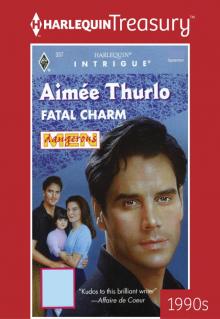 Fatal Charm
Fatal Charm Christmas Witness
Christmas Witness Blood Retribution
Blood Retribution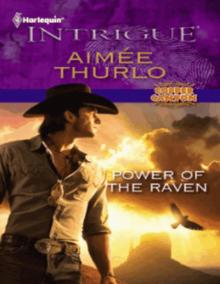 Power of the Raven
Power of the Raven Eagle's Last Stand
Eagle's Last Stand Bad Samaritan
Bad Samaritan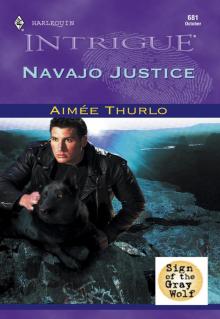 Navajo Justice
Navajo Justice Undercover Warrior
Undercover Warrior Wind Spirit: An Ella Clah Novel (Ella Clah Novels)
Wind Spirit: An Ella Clah Novel (Ella Clah Novels)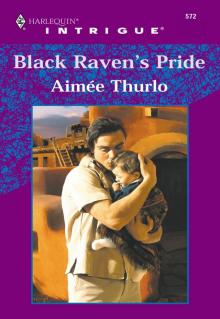 Black Raven's Pride
Black Raven's Pride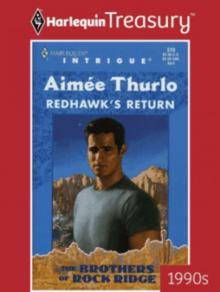 Redhawk's Return
Redhawk's Return Second Sunrise
Second Sunrise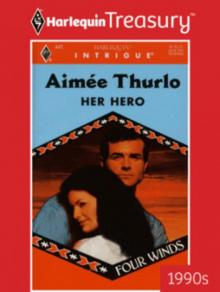 Her Hero
Her Hero The Prodigal Nun
The Prodigal Nun Her Destiny
Her Destiny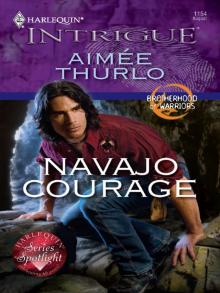 Navajo Courage
Navajo Courage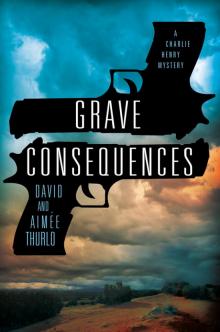 Grave Consequences
Grave Consequences Homespun Christmas
Homespun Christmas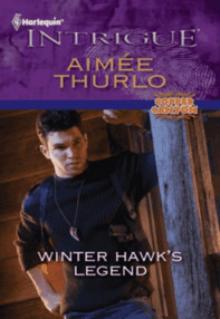 Winter Hawk's Legend
Winter Hawk's Legend Twilight Warrior
Twilight Warrior Restless Wind
Restless Wind Pale Death
Pale Death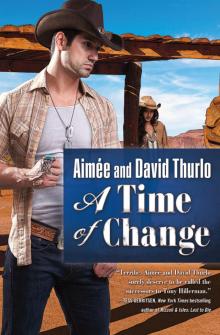 A Time of Change
A Time of Change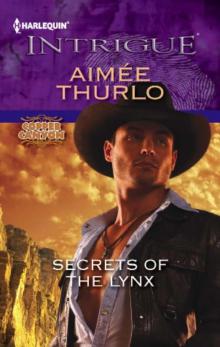 Secrets of the Lynx
Secrets of the Lynx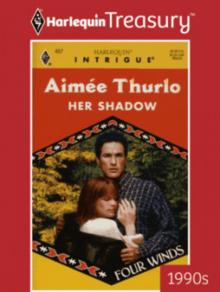 Her Shadow
Her Shadow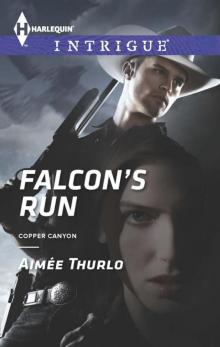 Falcon's Run
Falcon's Run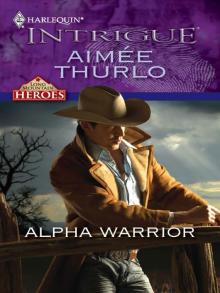 Alpha Warrior
Alpha Warrior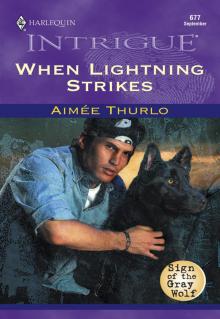 When Lightning Strikes
When Lightning Strikes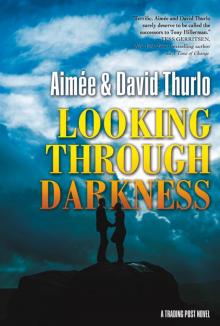 Looking Through Darkness
Looking Through Darkness